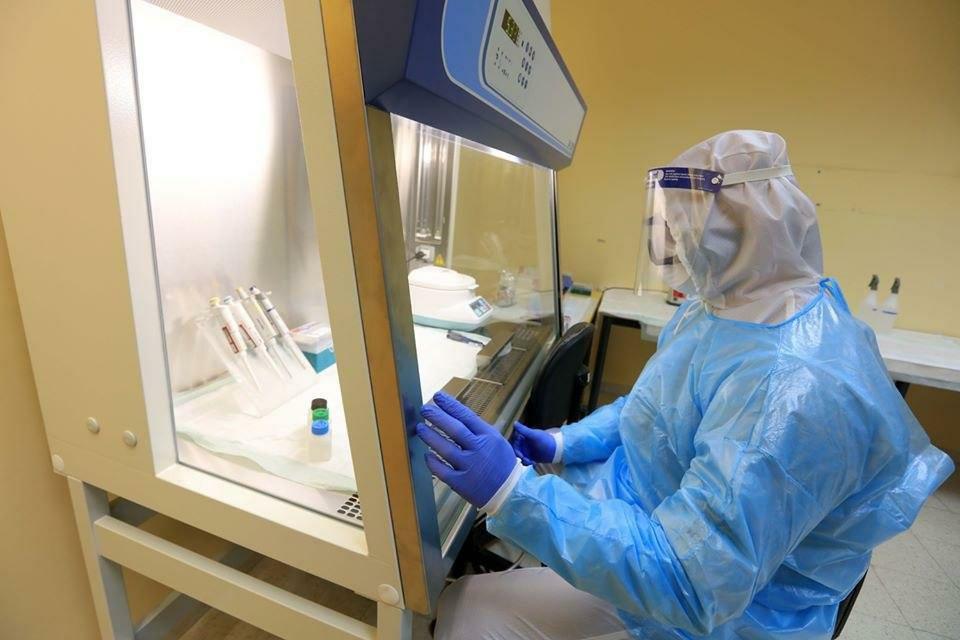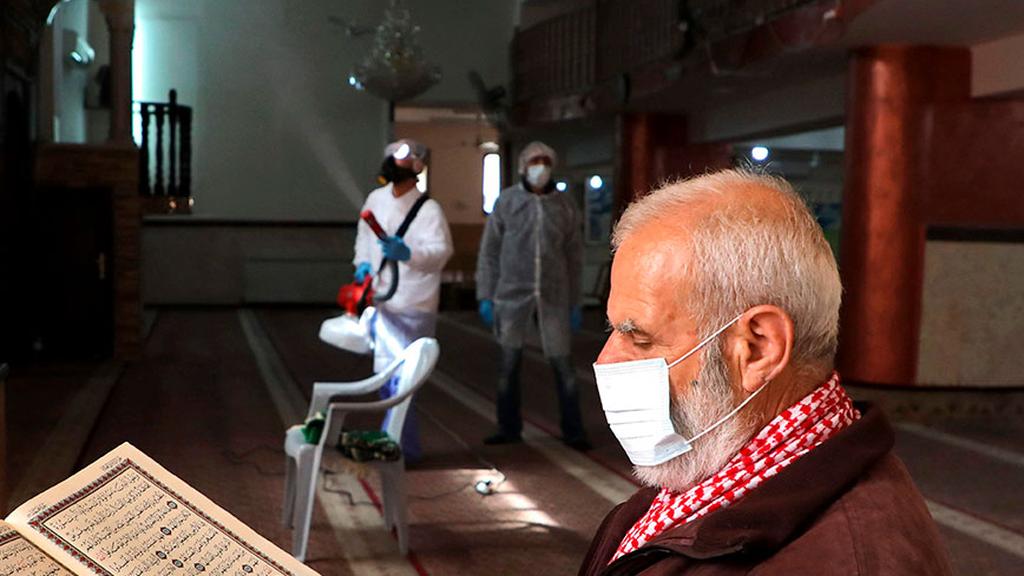A row has erupted between the central Palestinian Authority and its local leaders over the lockdown of PA areas in the West Bank due to the coronavirus.
The PA and the heads of the governorates had released contradictory official statements regarding the extension of the lockdown on Palestinian cities.
7 View gallery
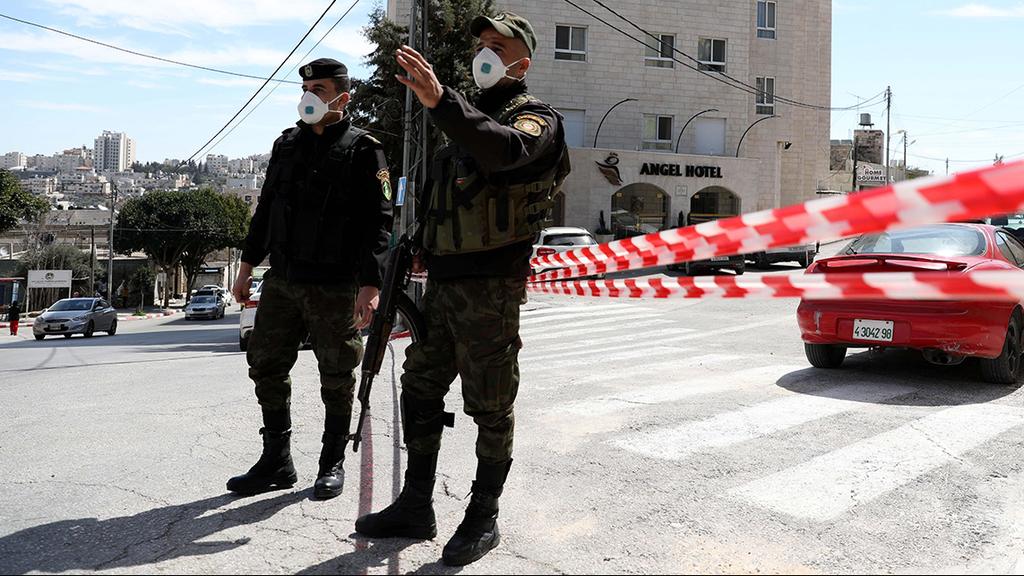

Palestinian security forces lock down parts of Bethlehem during the coronavirus outbreak
(Photo: EPA)
Palestinian Prime Minister Mohammad Shtayyeh said Sunday night that a final decision was to be made on Monday after discussions between the governors and the chambers of commerce of Ramallah, Bethlehem, Nablus and Hebron.
Nonetheless, a spokesperson for the government said that social events and overcrowding would remain prohibited as all citizens had to adhere to preventive measures set out by the Health Ministry, regardless of the governors’ decisions.
7 View gallery
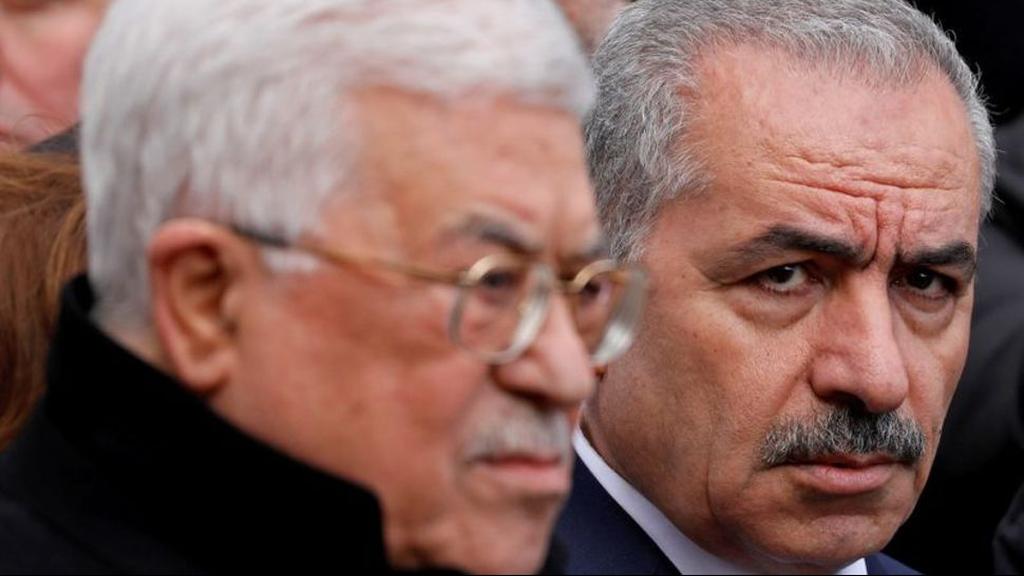

Palestinian Prime Minister Mohammad Shtayyeh and Palestinian President Mahmoud Abbas
(Photo: Reuters)
The PA government said Sunday it had decided to extend the 10-day lockdown by another four days, but the governors of Ramallah, Hebron, and Nablus each announced that their cities were exempt from the decision.
Hanna Issa, a Palestinian legal and political analyst, said that decision-makers’ ineffectual floundering represented a real tragedy, “where clearly trust between the government and the citizens is in very bad shape because poverty is rising and the occupation remains the same, and there are a global pandemic and closures.”
7 View gallery
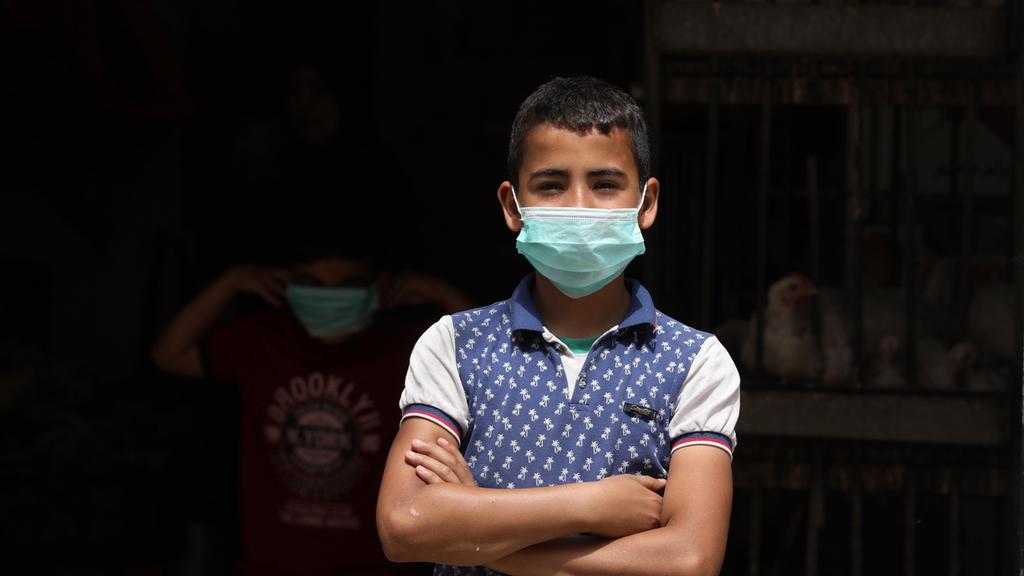

A Palestinian boy wearing a mask against coronavirus in a refugee camp near Nablus
(Photo: EPA)
He said that the Palestinian government’s plans had to be adjusted to suit the citizens, as it could not impose a lockdown without providing them financial aid and other assistance.
“The citizens are hungry, everything in the country is closed and everyone has been affected. For instance, the merchants and restaurant owners’ businesses are suffering from a major economic blow. At the same time, citizens need to understand that the virus is very dangerous; awareness is required here,” Issa said.
The conflicting official statements had to do with a lack of understanding, “where the governors want to go with the citizens’ desire to reopen the cities, while the government has prioritized limiting the spread of the coronavirus, without balancing that approach with its citizens’ demands,” he explained.
7 View gallery
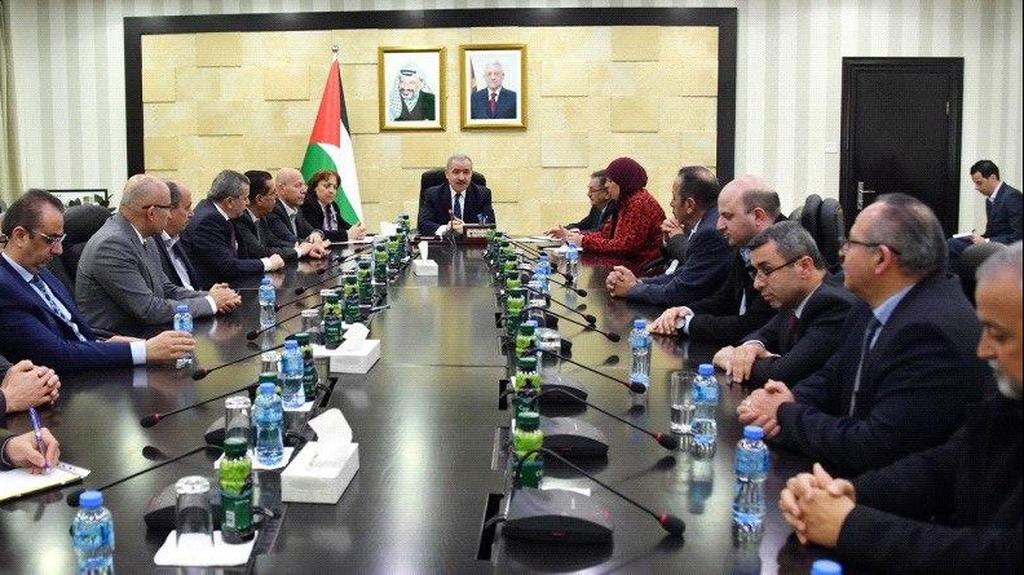

Palestinian Prime Minister Mohammad Shtayyeh meets with hospital chiefs on the coronavirus crisis
“The government has no clear strategy for dealing with the COVID-19 crisis,” Issa said.
Dozens of merchants protested in downtown Ramallah on Monday against the extension of the closure. They demanded that markets reopen as they had run up debt and other commitments.
One merchant told reporters that he used to do business worth millions of dollars, and now he was broke.
“Look into my wallet, I only have 20 shekels [less than $6] in it; I don’t have any money! They [the government] can come to my company and look into my financial accounts; I don’t have any money. Merchants became poor, our checks are bouncing.”
He continued: “We are not against the government, rather the opposite; we are with the government. But we need to live, we need to earn money in order to live, in order to fight [the virus].”
Another merchant mocked the closure decisions that exempted the banks, saying sarcastically that the coronavirus apparently existed only in retail shops and on public transportation.
“The virus doesn’t exist in banks; it phoned us yesterday to tell us that it doesn’t go to banks,” he said.
Dalal Erikat, a leading Palestinian academic and a columnist for the Al-Quds newspaper, said that there was a conflict of priorities, as the High Emergency Committee had made the decision to extend the lockdown based on national and medical considerations, while the governorates focused on the more immediate needs of citizens, especially the economic aspects.
“Citizens are putting huge pressure on the governments, as is the private sector. You could say the people are pressuring the [central] government through [the regional] governments,” Erikat said.
She said that as a general rule, exceptions in terms of laws and regulations should not be made for cities, especially during a state of emergency in the country, when the rules must be the same for everyone, “as such things move citizens to adhere to the law and to respect the system.”
Erikat said that after the first governorate announced that its capital city was an exception, other governors started saying the same.
“But we must understand that there’s huge pressure on the governors to reopen markets, especially since there’s no government compensation or assistance for the citizens,” she said.
According to Erikat, the closure decision would not be an issue if there was government financial support for the Palestinians, and public health would become the top priority for everyone in the country.
“We are in an exceptional situation: Our government isn’t capable of compensating the citizens because of the bad economic situation, and the people want to secure their livelihoods,” Erikat said.
The board of directors of the Ramallah and Al-Bireh Chamber of Commerce announced on Sunday that an emergency meeting with the governor, Laila Ghannam, would take place to arrange the gradual reopening of retail shops, in a manner that would follow the central government’s directions to counter the spread of the virus and maintain public safety.
7 View gallery
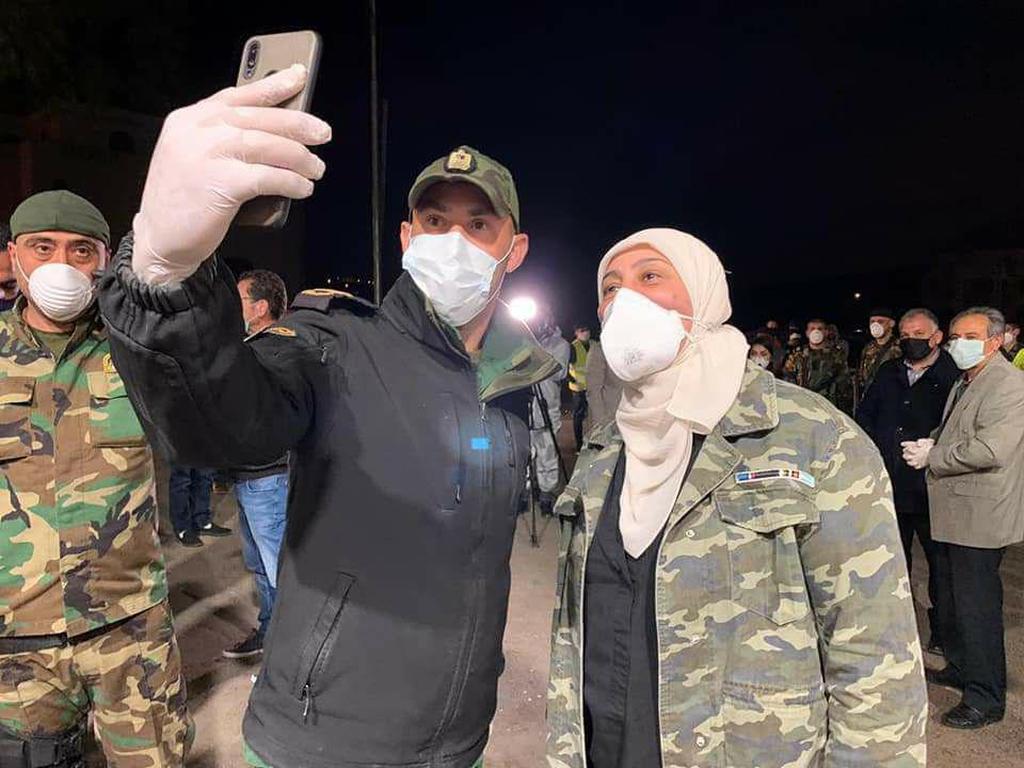

Ramallah Governor Laila Ghannam with a member of the Palestinian Security Forces during the coronavirus crisis
Jalal, a resident of Ramallah who asked to withhold his last name, said that while the situation was unclear and chaotic, citizens clearly opposed the continued closure. “In normal times, governors have full authority over their cities, but we’re facing an abnormal situation; therefore the decision is no longer in their hands,” he said.
The conflict in official statements was confusing Palestinians at a time when they were already under huge pressure, Jalal said.
“The government’s decisions aren’t clear, and anyway, it has no authority on the ground to implement them.”
Hisham, a Palestinian from Hebron who also asked to withhold his last name, said that he would rather die from COVID-19 than from hunger, “especially since the PA is incapable of providing to its citizens the basic requirements needed to face the coronavirus pandemic and the Israeli occupation.”
The PA appeared confused and without proper plans to face the virus or the economic crisis, he said.
Article written by Dima Abumaria. Reprinted with permission from The Media Line
First published: 13:08, 07.14.20


